| |
 | |
 |
Witold Wajszczuk (1080)
On the day of expulsion by the Germans from his home
in Wysokie on November 8, 1941, Witold was almost 9 years old. He and
his family stayed initially in a transit camp in Zamosc and then in
Hostynne. They were released from the camp on December 22, 1941.
In the meantime his father Józef, who belonged to the Underground
Resistance (ZWZ-AK, pseudonym "Mały"), was arrested by the Germans on
November 24, 1941, then incarcerated in Zamość and in Lublin (from
November 24, 1941 until April 28, 1942) and then was sent to the
Auschwitz Concentration Camp - prisoner # 35377, where he perished on
December 20, 1942.
After their release from the transit camp, the family was forbidden to
return to their village and they stayed with their friends in the
village of Chyża. After subsequent expulsion from Chyża in December of
1942, they were sent to work for a German farmer, who was resettled to
this area, to the Karolówka settlement on the western outskirts of the
town of Zamosc. After liberation and return to Wysokie on July 19,
1945 they found their farm in a state of tremendous disarray,
buildings taken apart and torn down by the settled-on "black" (refers
to their black quasi-military outfits) Germans. Due to this fact, they
were forced to live during the following 2 years and 9 months in
temporary barracks. In 1953 Witold was drafted into the so-called "Substitute
Military Service" (Zastępcza Służba Wojskowa),za Służba Wojskowa), "Military
Coal Corps" (Wojskowy Korpus Górniczy) and was released in 1954.
Subsequently, he worked on his farm and then on the construction of a
special wide-gauge railroad track "PKP-LHS" connecting Soviet Union
with the industrial centers in the south-west of Poland. He retired in
1993 and died in 2006.
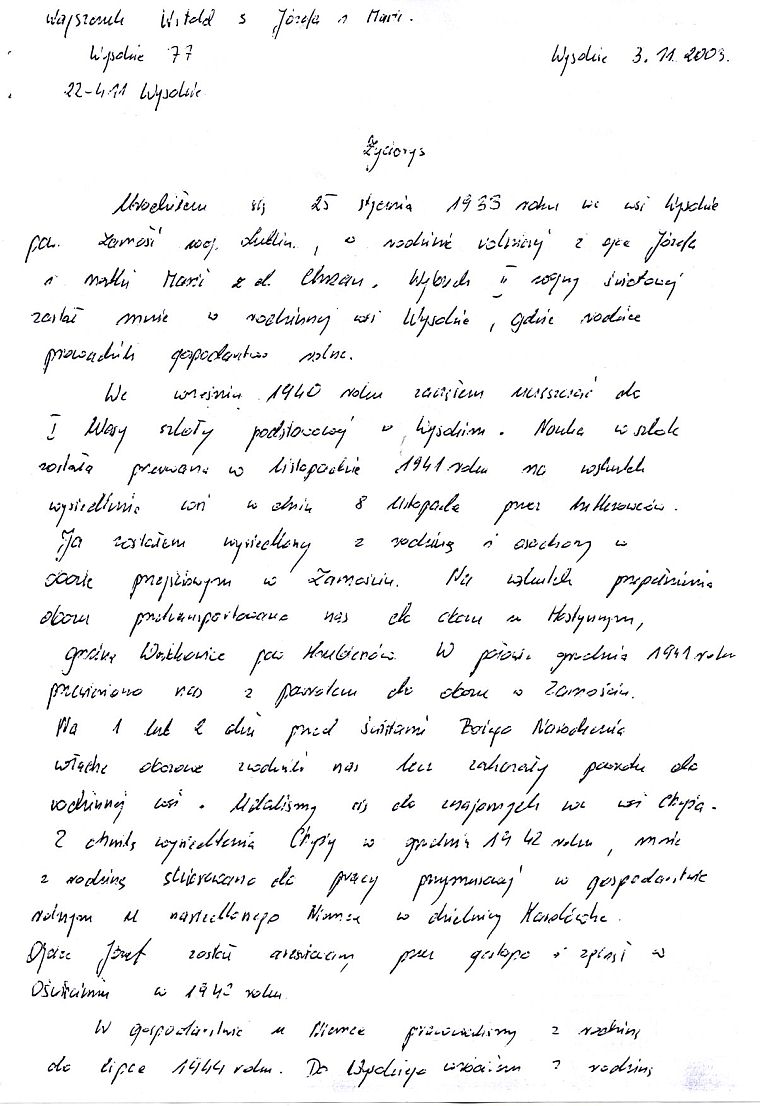
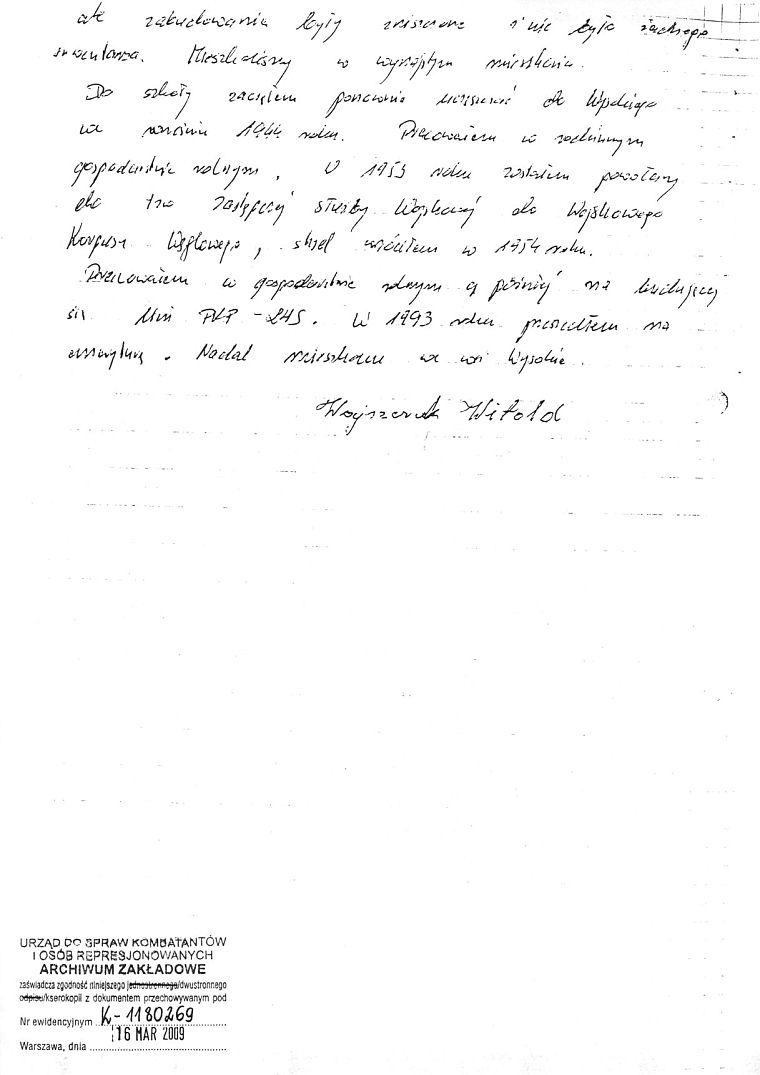
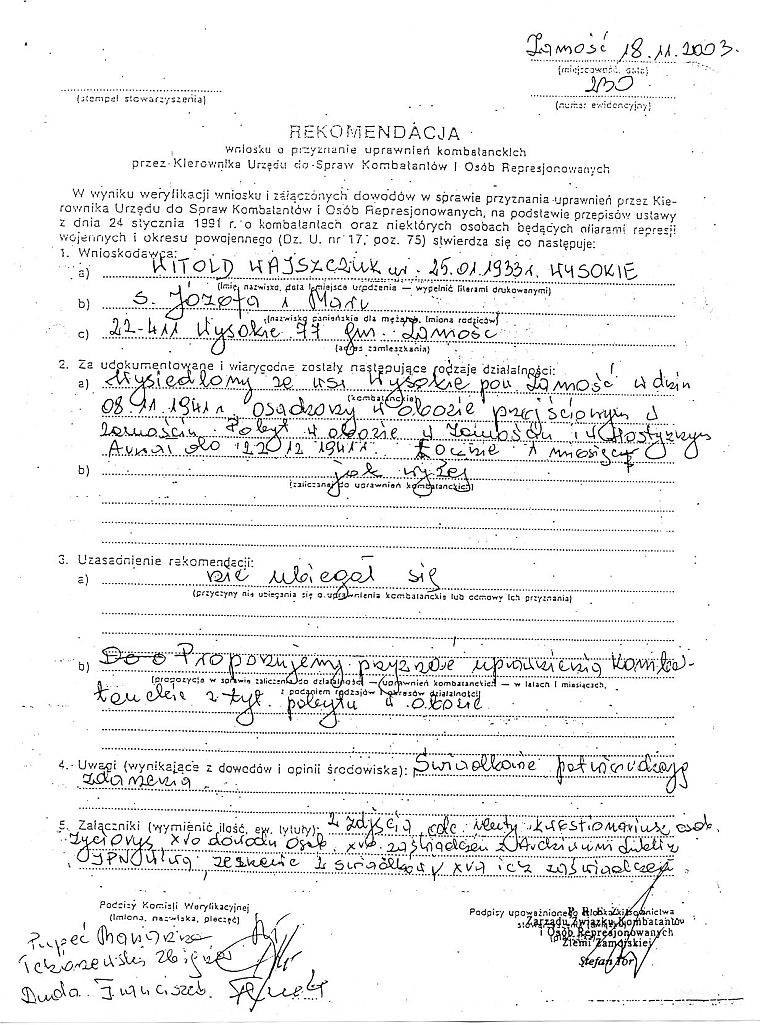
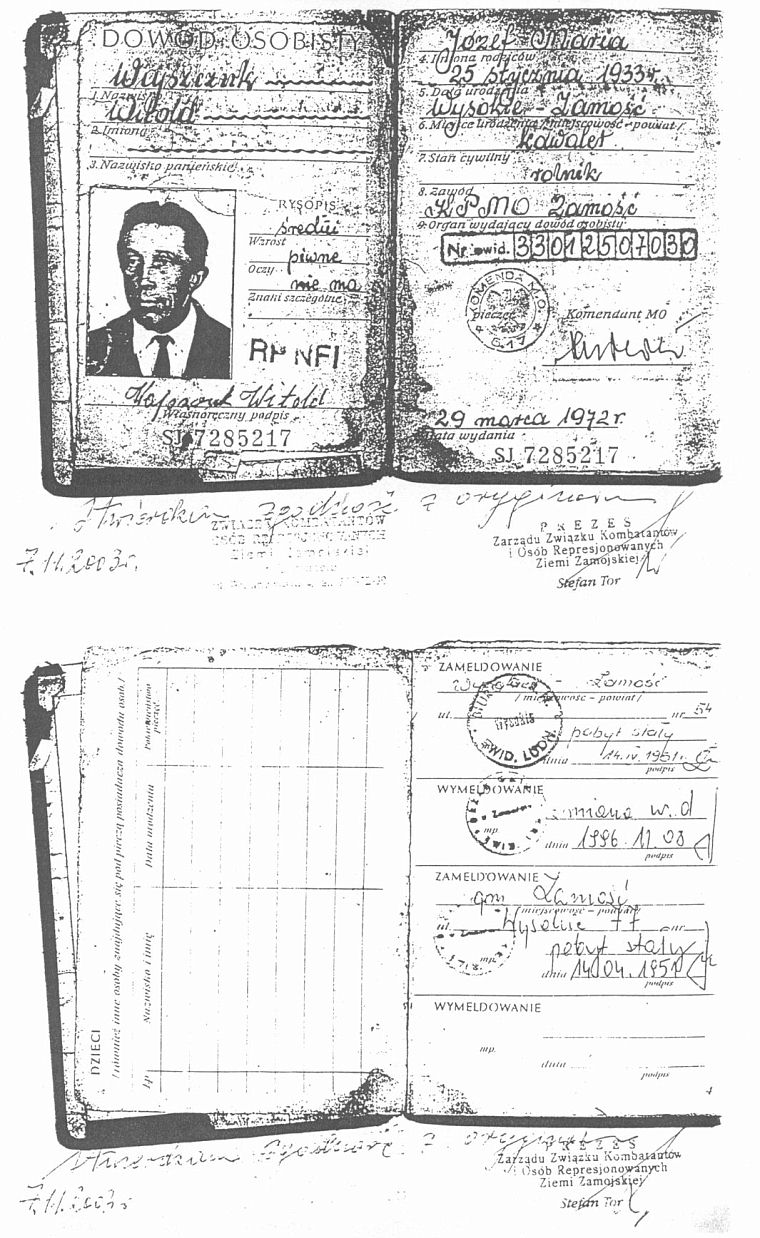
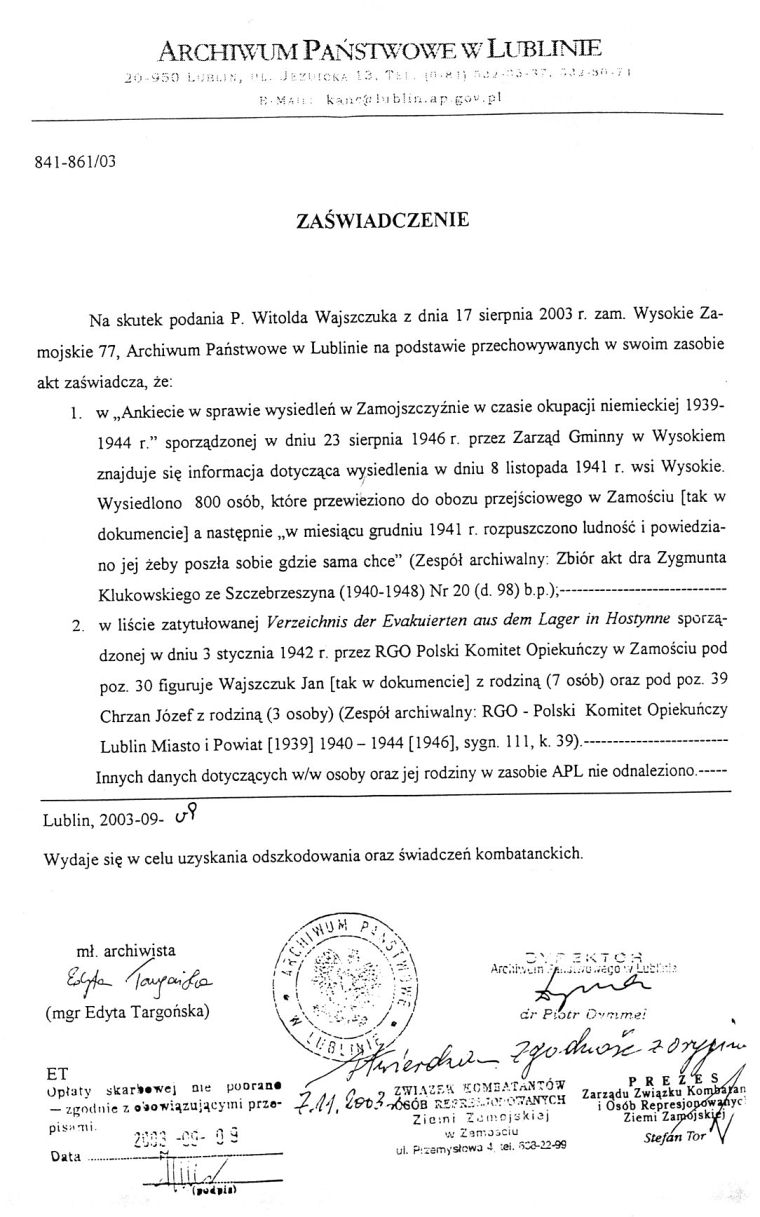
Prepared by: Waldemar J Wajszczuk & Paweł Stefaniuk
2024
e-mail: drzewo.rodziny.wajszczuk@gmail.com
|
|
 | |
 |
|
|
|